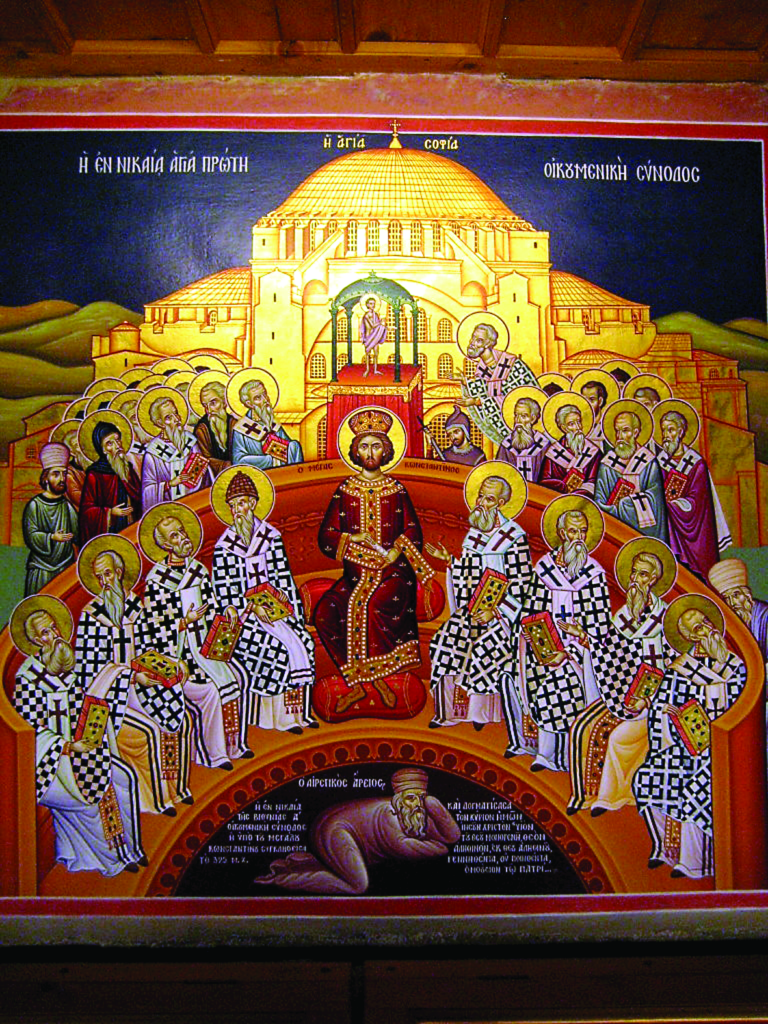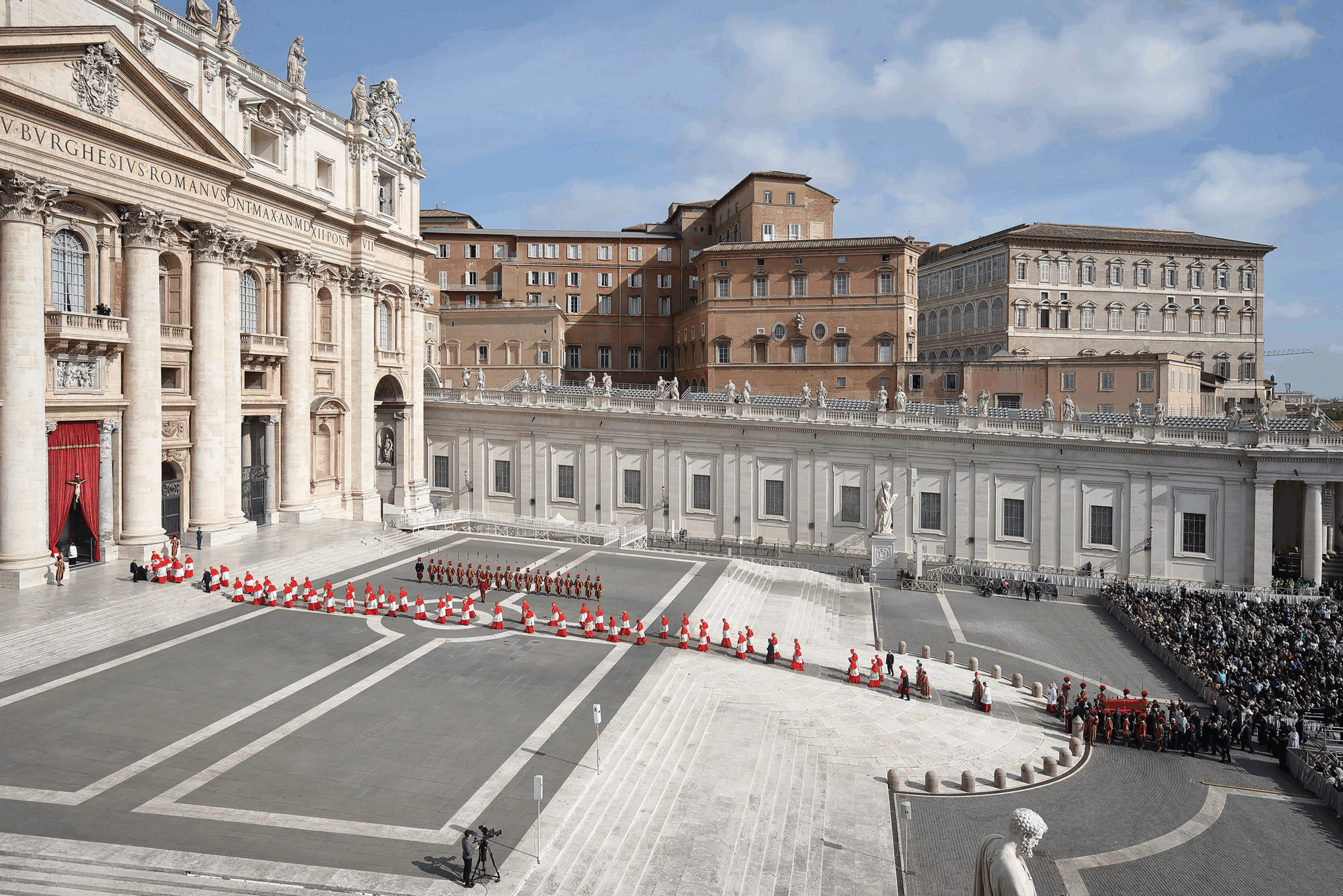“I believe in one Lord, Jesus Christ, the only Son of God, eternally begotten of the Father. Light from Light, true God from true God, not made, one in being with the Father”
By Robert Wiesner

Arius sentenced by the Council of Nicea, icon from the monastery of Mégalo Metéoron, Greece
Of all the distinct articles of the Creed, this is the statement which most directly refutes the teaching of Arius. The error in logic that Arius committed was to equate temporal begetting with eternal begetting. We can more or less understand temporal begetting; there are eggs and there are chickens and the occasional intervention of a rooster, and so a definite progression can be discerned over the course of time. The same is true of human beings; even Scripture speaks often of just who begat whom, providing an orderly line of descent from past to then-contemporary historical figures. Most notably, the human lineage of Jesus is given in the Gospels of Matthew and Luke, Matthew according to physical descent and Luke according to the law; both clearly indicate that Jesus, in His human ancestry, was a legitimate descendant of King David.
What Arius failed to understand was the vastly different dynamic operating in time as opposed to eternity: he made the assumption that begetting in eternity was essentially the same process as begetting in time. In other words, he failed to properly examine his terms before going off on his wild tangent.
The revised Creed of 381 made the distinction clearer by the addition of the term “eternally”; another way of putting it in some translations would be “begotten before all ages” which definitively distinguishes eternity from time.
Eternity “predates” time, if one may put it that way. Eternity seems not to be a creature, whereas time, with a beginning, clearly is a created reality. The divinity of the Son is emphasized further by the blunt assertion that He is “true God from true God… one in being with the Father.”
This statement in the Creed is clear enough, but that is not to say that the mystery of the relationship between Father and Son is equally clear. In fact, the greatest theologians in history are unanimously agreed that limited human intellects simply cannot fathom exactly what constitutes begetting in eternity or just how Sonship and Fatherhood are distinguished from one another but at the same time form a unity: “The Father and I are One” states John 10:30. (Arius should have read the Gospel of John more carefully!) The best recourse is to recall the experience of Job in his encounter with God. The upshot is simply that God’s ways are not our ways and any attempt at fully comprehending the doings of divinity are doomed to failure.
There are certain revelations concerning God which demand that theologians simply shrug their shoulders and admit defeat: “All right, I don’t really get it, but God has said it and I am not going to call Him a liar. I accept it and move on with life, perhaps with a much simpler topic like astrophysics or quantum mechanics.”
Although Arianism in its pure form was largely put to rest by the first two Ecumenical Councils, there are yet movements and theologians in our modern age who still persist in attempts to downplay the divinity of Jesus Christ. Under the influence of scientific rationalism, many philosophers came to the conclusion that the finest form of inquiry into the mysteries of creation consists of splitting composite beings into their component parts for study in detail. Thus, some theologians following this path so separate divinity and humanity in Christ as to deny the union of the two — but that is the subject of a later article in the Creed!






Facebook Comments